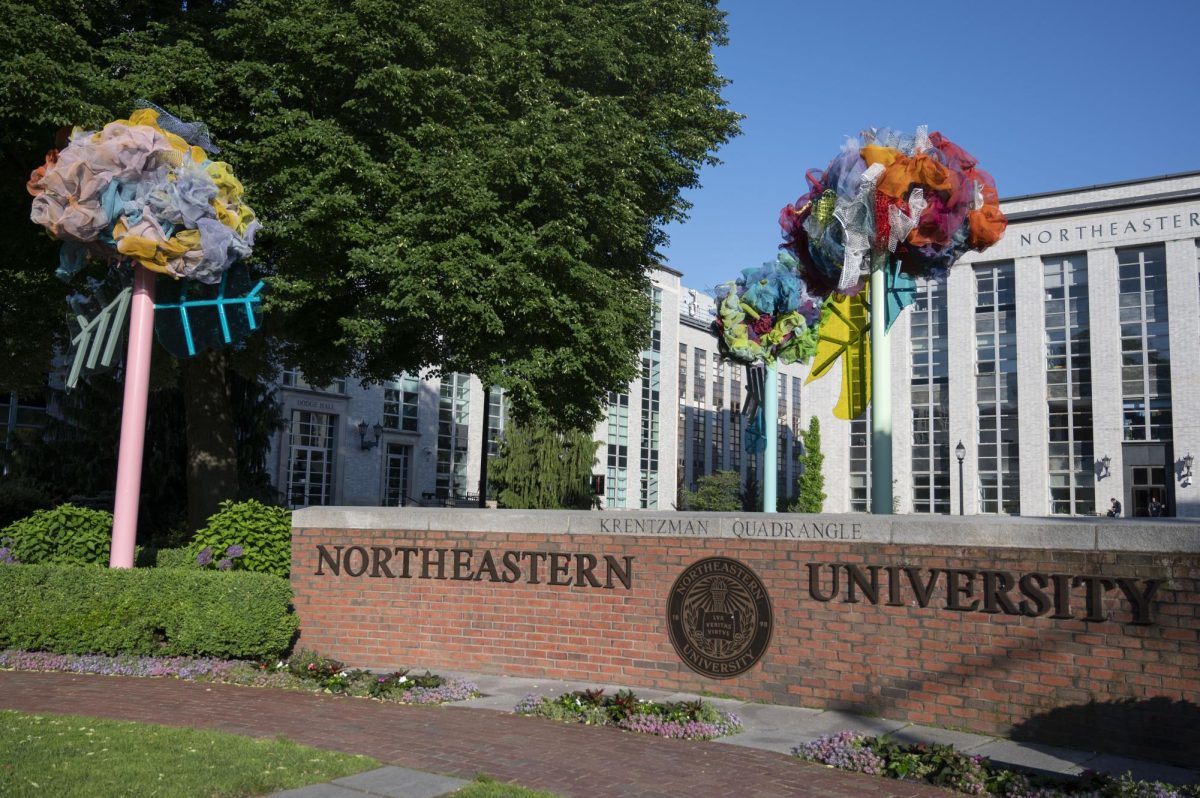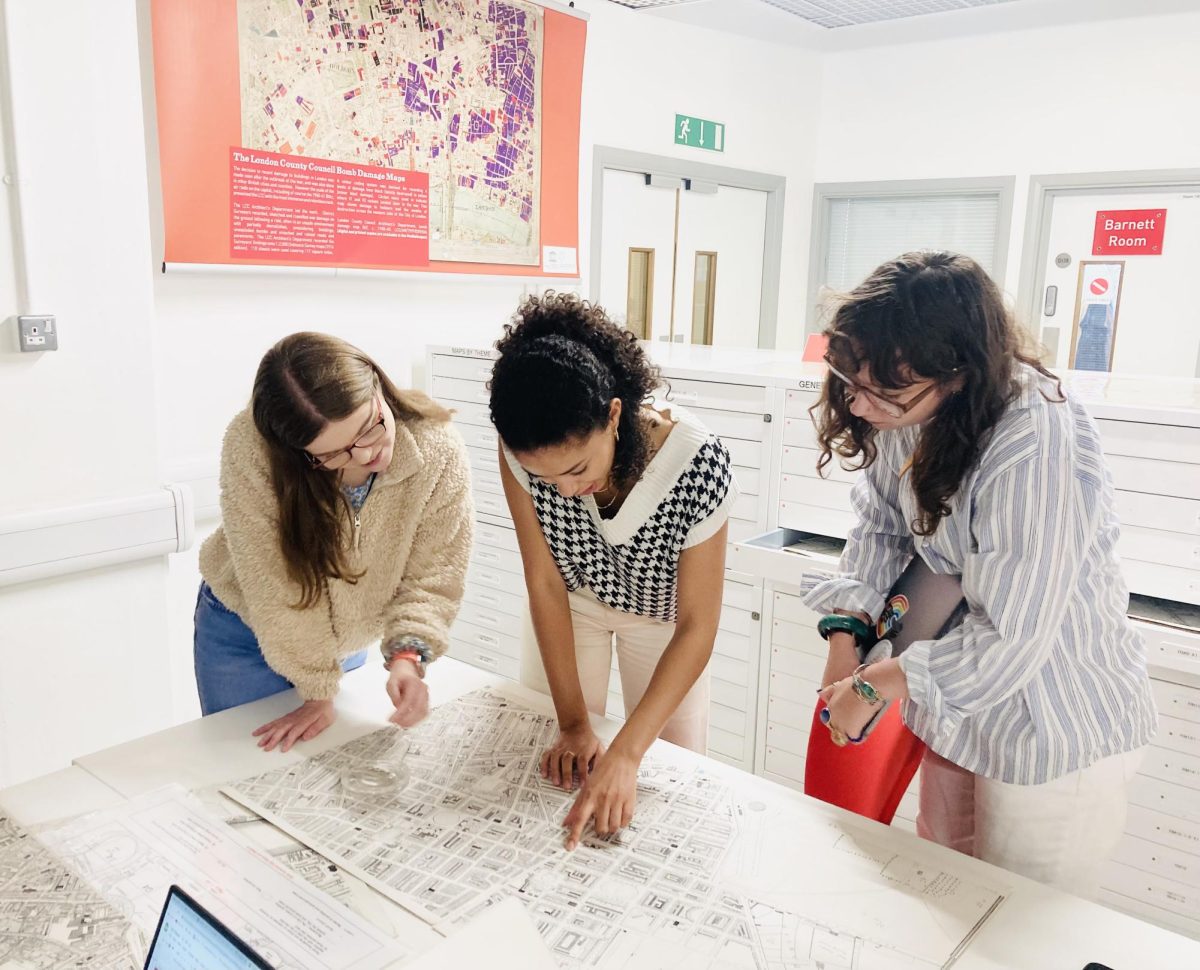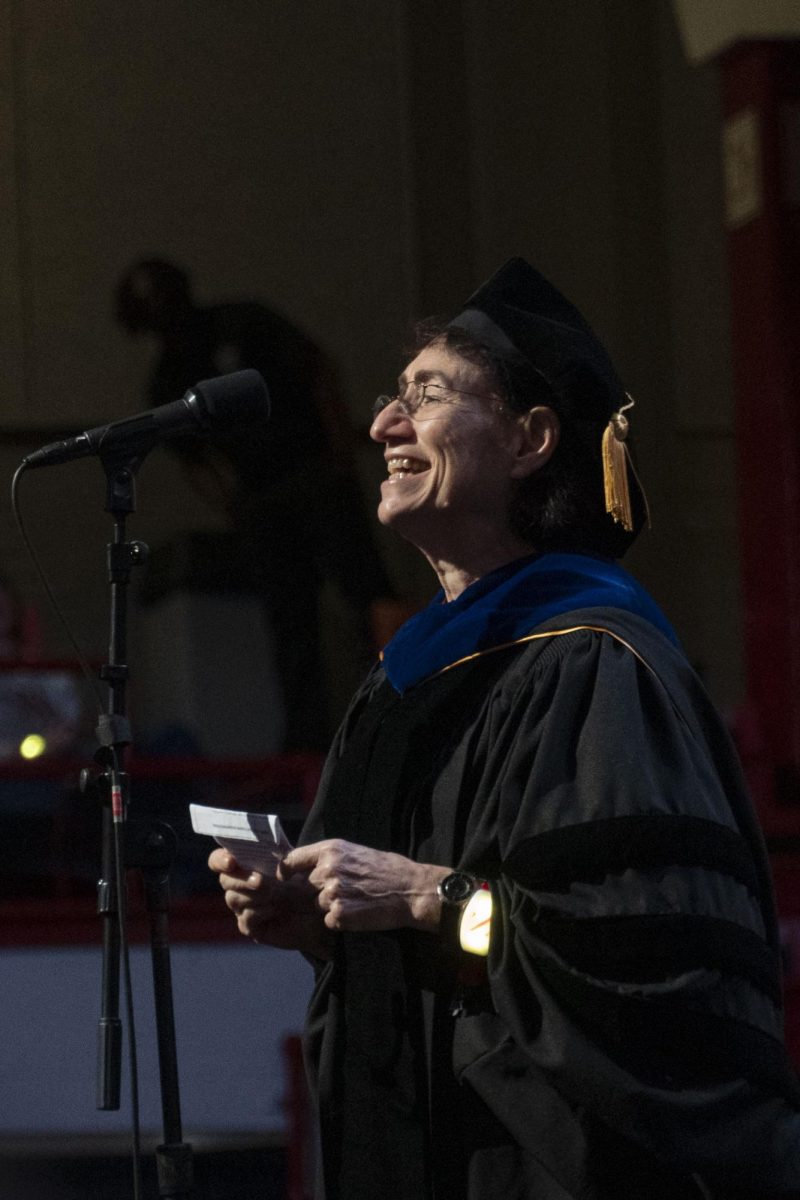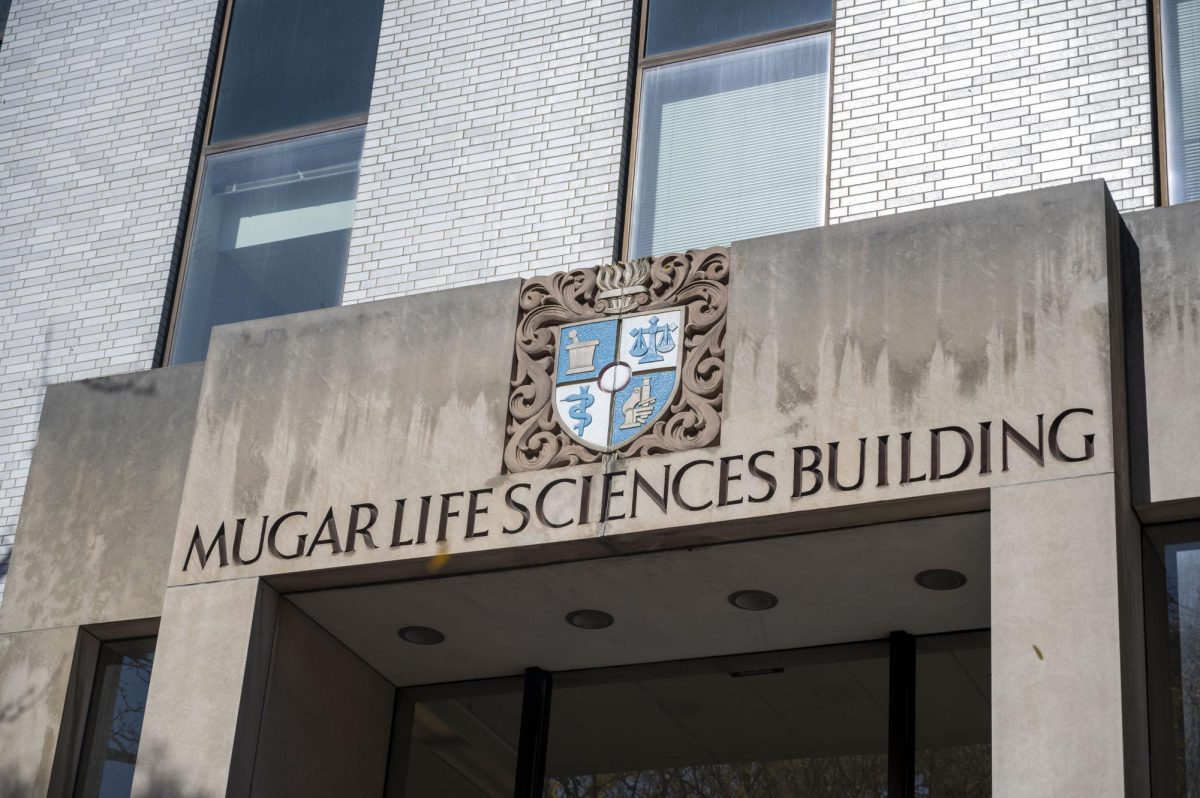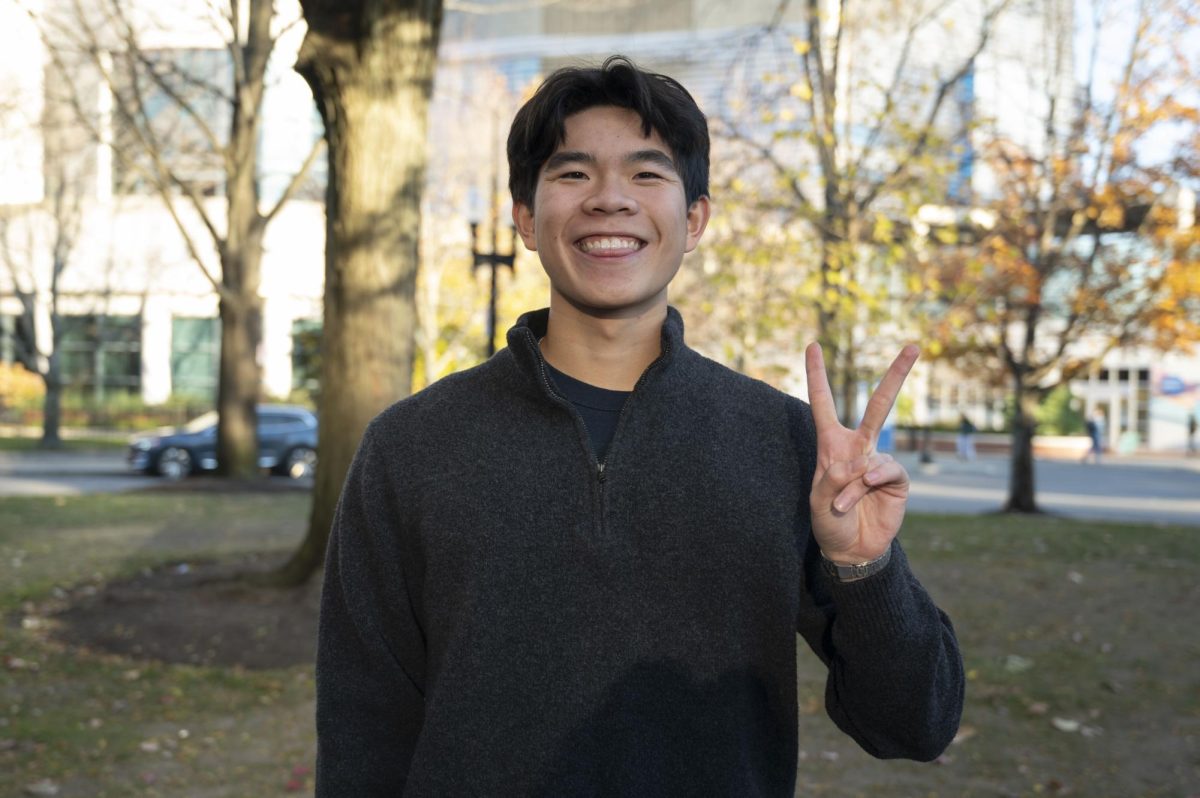By Steve Babcock
The Student Government Association elected its next executive board Wednesday at a marathon meeting that, for the first time, saw candidates for five out of the six positions debate and answer questions written and submitted by the student body.
The 5 1/2-hour Joint Senate, which produced four new office-holders was described by SGA President Richard Schwabacher as the “most thorough” elections to date.
“This was the prelude to direct elections,” Schwabacher said, referring to the plan that SGA hopes to pass next year that will bring student government’s elections to every member of the student body, as opposed to the 50 senators that voted in this and every past election.
In the evening’s first election, current Executive Vice President for Student Affairs Michael Romano defeated Senator Sam Klar by four votes to become SGA’s next president.
While the two embraced before and after the debate, Klar’s remarks from behind the podium did not reflect the friendly gestures.
The first contentious moment came when Senator Diana Eisenberg asked each candidate what compromises they would have to make if elected.
Klar said he would have to “overcome the hours of the day,” and, in mudslinging fashion, attacked Romano’s answer that he was “sometimes overworked.”
“I’m not going to be hosting Model UN conferences. I’m not going to be jetting off to Las Vegas to meet with my dad,” he said, bringing out other responsibilities that made Romano absent from the SGA office at times. “All my time is going to be devoted to running this organization and soliciting student opinion.”
When Klar’s time to answer the question had expired, a buzz came over the room, with a number of senators quietly saying “ouch.”
After their closing statements, Klar apologized for his comments, saying he knew “as soon as it left” his mouth that he should not have said it. Romano accepted, saying there was “no need” for the apology.
Another issue brought up during the debate was Romano’s allowance of Vice President for Academic Affairs Andres Vargas to sit on the Student Affairs Committee and Student Affairs Board. The current executive board had reached an agreement at the beginning of this year that vice presidents would not be allowed to sit on committees other than ones they chaired.
“You have been a member of an e-board that has put an emphasis on political pettiness,” Klar said. “Vice President Vargas sitting on two of your committees, when you knew full well that he wasn’t supposed to, is a prime example of that.”
Romano countered, saying Vargas stopped sitting on the committee during the winter quarter at President Schwabacher’s request.
“[Vargas] had no voting rights,” he said. “I was asked by President Schwabacher to stop letting him sit on the committee, so I did.”
Klar, though, did not relent, insisting that Vargas had sat on the committee even after Romano’s eventual declaration that it was a “dead issue.”
Vargas later said he “expected more” from the direction of the debate.
“When what I do becomes an issue on deciding the presidency, that is a problem,” he said.
Vargas may have expected more from himself during his own debate as well. He came up 16 votes short to Allyson Savin, a freshman, for the executive vice president of student affairs post. Despite the loss and somewhat wide margin, he said he was comfortable with the outcome of the election.
“The margin is obviously disappointing, and doesn’t make it any easier,” he said. “But I think Allyson will do a great job. We were both capable candidates.”
Savin, the current assistant vice president for student affairs, said she was surprised by the margin of her win.
“I considered myself a slight underdog coming into tonight,” she said. “It was a more inexperienced senator versus an incumbent who has been on the e-board.”
During their debate, the two presented very different ideas about how to run student affairs. Vargas aggressively focused on sports as a way to unite students, and said uniting the students would be the way to garner enough student support for a Rape Crisis Counselor to make the administration “finally see the need” for one on campus.
Savin, in a collected and much quieter voice, said that bringing student groups together to get the word out about what student government was doing would be the way to unite students. She said the university’s reluctance to provide resources warranted that the issue be brought before the Boston Intercollegiate Government to gain “70,000 students’ support instead of just 13,000.”
The most lopsided election of the evening was for the vice president of financial affairs, in which incumbent Michael Benson defeated his assistant vice president, Lorelei McCullom, by a margin of 31 to 8, with two votes of no confidence.
Their debate focused mostly on the Budget Review Committee (BRC), whose role will be increased next year with the raised Student Activities Fee (SAF). As the main responsibility of the financial affairs branch, the BRC is the first committee a student group goes through to receive funding from the SAF.
This year, the BRC was subject to much criticism from student groups who were denied funding due to what McCullom called “inconsistency” in their reasoning for denial to each organization.
“We haven’t been consistent and fair,” she said. “If we have guidelines, then we can have reasons why we are denying student groups their funding.”
In response, Benson promoted the completion of his new model for the BRC, which will be debated in Senate soon and was created by a working group he chaired. He said the model lays one set of standards for accepting and denying student group funds.
Also victorious Thursday was InterFraternity Council President Peter Antonellis, a junior. Antonellis won vice president of academic affairs by two votes, the slimmest margin of the evening, over class of 2007 President Tom McCann.
Their close race was characterized throughout their debate, as the candidates engaged in a back and forth exchange, culminating with a question to Antonellis about the misplacement of a lighting survey where he was interim vice president for student affairs during the last academic year.
Antonellis, who was in England on study abroad at the time he was accused of losing the survey, said he was told it was “not an emergency” when he asked if he should find the survey immediately.
“The span between the time I handed in the survey and the time that then President Dayharsh contacted me was almost two months,” he said. “I guess I learned that you have to double check with the president of SGA before handing in anything.”
Assistant Vice President for Administration Stephanie Ravelling used proposals for a “fun” year including a new and improved senator orientation to elevate her role to vice president. She beat freshman John Guilfol, who said it was “his dream” to become vice president of administration, and had plans for an aggressive marketing campaign that included a proposal to use money from SGA’s budget to bring George Carlin to campus in the fall.
After the election, Schwabacher said he was more confident in the next e-board because of their ability to handle the aggressive form the debates took at times.
“There were moments when people felt uncomfortable, but [the Senate and candidates] pulled it together,” he said. “I’m glad they were able to handle it, because now these guys have to go up against bigger and badder guys in the administration.”
Romano was also optimistic about the next academic year.
“Call me naive,” he said, “but next year I think we’ll make a difference.”


